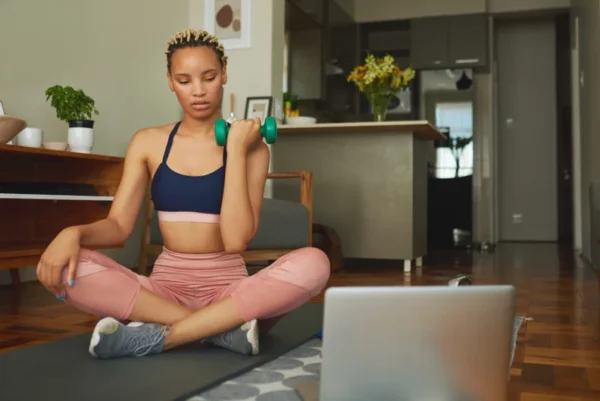
Personal Trainer Gives 6 Tips on Staying Motivated in 2024

As we enter a new year, a lot of us tend to set ourselves a New Year’s resolution focused on getting fit, joining the gym, and generally being healthier. But how do we stick to it and stay motivated? One great way to maintain consistency and accountability is by working with a home personal trainer. A home personal trainer can create personalized workout plans tailored to your goals, offer guidance on proper techniques, and provide the motivation you need right in the comfort of your own space. This makes it easier to stay committed and achieve lasting results.
A study from Nike x Next revealed that four in five of us struggle to exercise during the winter months.
With that in mind, Next and Nike teamed up with personal trainer and online coach Ben Teasdale to share six tips on staying motivated when exercising in the new year. Ben also explains the mental health benefits of exercise.
1. Goal setting
“One of the key ways to maintain motivation is to set yourself a realistic goal within a relatively short time frame (e.g. 8-12 weeks). That might be lifting a certain weight, running a set distance, or even just completing a number of workouts consistently each week. Having an achievable goal to aim for will make you far more inclined to stay consistent with your training.”
2. Accountability partner
“Find yourself a friend or family member that also likes the same form of exercise and work together to keep yourselves motivated. It doesn’t matter if you have different abilities or goals, just keeping each other accountable can be really beneficial.”
“If you don’t know anyone in the same position or mindset, it’s worth getting a coach who you can regularly check in with, who can help to monitor your progression and give encouragement when it’s needed.”
3. Workout in the morning
“In the winter months, it’s especially difficult to motivate yourself on an evening when the days are shorter. I’d recommend exercising earlier in the day if you can, as it’s very tempting to talk yourself out of exercising if you’re doing it after work when it’s dark and you feel tired. Getting out of bed in the cold might be difficult, but it’ll set you up for the day and give you more energy.”
4. Fuel yourself in the right way
“It can be tempting when you’re spending more time inside to choose to eat more and less healthily. However often, these kinds of foods can make you feel lethargic, sluggish, and less likely to want to move your body. Focusing on a high protein, mostly clean diet can really help you to feel good mentally and physically, which will help you to stay motivated.”
“Generally, I recommend sticking to an 80/20 rule – eating nutritious, healthy foods 80% of the time and allowing yourself to eat foods you love around 20% of the time so that you don’t feel restricted.”
5. Recognise that motivation comes and goes
“Ultimately, you can’t always rely on motivation, as there will always be some days that you feel less motivated. If you really want to maintain an active lifestyle, it’s about being disciplined and forming good habits.”
“On the days where you feel less motivated to exercise but actually manage to get your workout done, give yourself praise. It doesn’t matter if it isn’t your best session or you’re not setting new ‘personal bests’, just getting yourself moving on those days will help you to stay motivated.”
6. Keep note of your progress
“It’s a good idea to keep a logbook of your exercise to keep track of your progress, so make notes of the days where you weren’t feeling it but still showed up. This can help reinforce the good habit and make you more likely to continue.”
The mental health benefits of exercise
“The benefits of exercise aren’t just physical. It’s been scientifically proven that regular exercise also significantly impacts your mental health by reducing your cortisol levels and releasing endorphins.”
“Lots of us struggle with mental health at this time of year for many reasons; the pressures of the new year, dark wintery days and the instinct to hibernate after the busy festive season. That’s why keeping in mind the mental health benefits of exercise can really help motivate yourself to get moving. Knowing that after your workout you’ll have more energy and likely feel less stressed or anxious is a huge source of motivation.”
“These benefits come from all different kinds of exercise; whether it’s running, weightlifting or yoga – any form of movement is good for your overall well-being. You’ll see a difference in your quality of sleep, mood and concentration levels post-exercise.”
“It can be really beneficial to focus on an exercise routine and diet that is beneficial to your mental health, rather than fixating on the scales or how you look, as it becomes more of a lifestyle choice rather than based solely on appearance.”
“Setting yourself achievable exercise goals can also help build your self-esteem and confidence, which translates to outside of the gym, too.”












































